The only Maya city with an urban grid may embody an ancient creation myth

FOR YEARS, ARCHAEOLOGIST Timothy Pugh thought he was simply following the cows as he walked across the site of Nixtun-Ch’ich’, an ancient Maya city in northern Guatemala. The site, whose name means, roughly, “a rocky place,” is located on a peninsula that juts out like a pointed finger into Lake Petén Itzá. It is now part of a cattle ranch, covered with tall grass—perfect grazing land. Most of the other Maya sites in the area are obscured by dense thickets of jungle, so this was a lucky break for Pugh and his colleagues. Still, the nearly knee high vegetation wasn’t easy to move through. Pugh tended to follow the paths the cattle had already created as they tamped the grasses down with their hooves while they grazed, picking their way between mounds containing the remains of ancient ceremonial platforms up to 13 feet high.
Bu hikaye Archaeology dergisinin July/August 2018 sayısından alınmıştır.
Start your 7-day Magzter GOLD free trial to access thousands of curated premium stories, and 9,000+ magazines and newspapers.
Already a subscriber ? Giriş Yap
Bu hikaye Archaeology dergisinin July/August 2018 sayısından alınmıştır.
Start your 7-day Magzter GOLD free trial to access thousands of curated premium stories, and 9,000+ magazines and newspapers.
Already a subscriber? Giriş Yap
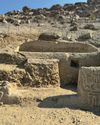
ORIGINS OF PERUVIAN RELIGION
While investigating looters' holes at the site of La Otra Banda in northern Peru's Zaña Valley, archaeologist Luis A. Muro Ynoñán of the Field Museum and the Pontifical Catholic University of Peru spotted carved blocks around seven feet below the surface.
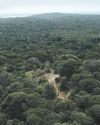
ISLAND OF FREEDOM
Many of the enslaved Africans sent to Brazil beginning in 1549 were from what is now Angola, where one of the most widely spoken languages was Kimbundu.
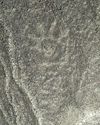
NAZCA GHOST GLYPHS
From the 1940s to the early 2000s, geoglyphs were discovered in the Nazca Desert of southern Peru depicting animals, humans, and other figures at the rate of 1.5 per year.

COLONIAL COMPANIONS
The ancestry of dogs in seventeenth-century Jamestown offers a window into social dynamics between Indigenous people and early colonists.
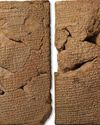
BAD MOON RISING
The British Museum houses around 130,000 clay tablets from ancient Mesopotamia written in cuneiform script between 3200 B.C. and the first century A.D.
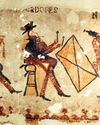
DANCING DAYS OF THE MAYA
In the mountains of Guatemala, murals depict elaborate performances combining Catholic and Indigenous traditions
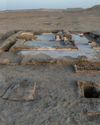
LOST GREEK TRAGEDIES REVIVED
How a scholar discovered passages from a great Athenian playwright on a discarded papyrus

Medieval England's Coveted Cargo
Archaeologists dive on a ship laden with marble bound for the kingdom's grandest cathedrals
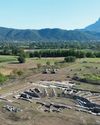
Unearthing a Forgotten Roman Town
A stretch of Italian farmland concealed one of the small cities that powered the empire
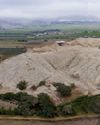
TOP 10 DISCOVERIES OF 2024
ARCHAEOLOGY magazine reveals the year's most exciting finds